Formula 1 Race Wheels vs. Road Car Wheels: What You Need to Know
Formula 1 (F1) is back this week, which means it’s race week! And the best part? The opening race is happening right here in Melbourne. But let’s talk about one of the most crucial components of every car—the wheels. When it comes to high-performance driving, wheels are more than just a functional necessity; they are the foundation of speed, handling, and style.
Just like in Formula 1, where precision-engineered wheels play a crucial role in winning races, F1 cars use different tire compounds and these are soft, medium, and hard tyres and each made of specialized rubber compounds to suit varying track conditions.
Unlike road cars, F1 wheels are made from forged magnesium, a material specifically designed for maximum speed, agility, and grip under extreme racing conditions.
At Mars Performance, these race-inspired principles are built into lightweight alloy wheels that enhance both performance and aesthetics. By reducing weight, improving fitment, and offering advanced concave designs, Mars Performance alloy wheels provide a road-ready advantage inspired by motorsport engineering.
What F1 Wheels Teach Us About Performance Wheels
In Formula 1, engineers meticulously design every component for maximum efficiency. Manufacturers craft F1 wheels from forged magnesium, a material that is both lighter and stronger than traditional alloys. In the racing world, both F1 teams and motorsport organizations choose forged magnesium wheels because they enhance speed while also improving safety.
Furthermore, these wheels help in reducing a vehicle’s weight and helps maximize acceleration and agility. While road cars don’t require the same level of weight savings, lightweight alloy wheels from Mars Performance also have the similar principle by reducing unsprung mass, leading to sharper handling, quicker acceleration, and better braking performance.
Another key aspect of F1 wheel design is optimized fitment. Formula 1 cars use wider rear wheels to maximize traction, especially under hard acceleration. This concept is mirrored in staggered fitment, which Mars Performance offers for high-performance road cars. Wider rear wheels improve grip, providing better stability and control, particularly for high-horsepower vehicles.
Additionally, F1 wheels are designed with aerodynamic efficiency in mind, as aerodynamics impacts a car's speed by reducing drag and increasing downforce. This allows the car to maintain higher speeds, especially through corners, and also helps keep the car glued to the track, improving grip and handling.
Its concave shape enhances airflow around the car and increases structural strength. Mars Performance applies this same principle to its concave alloy wheels, which not only look aggressive but also improve durability and brake cooling.
The Power of Lightweight Alloy Wheels
Wheel weight has a direct impact on a car’s performance. Lighter wheels add rotational mass, slowing acceleration, increasing braking distances, and making steering less responsive. This is why race teams prioritize lightweight materials. For road cars, lightweight alloy wheels from Mars Performance provide similar benefits:
- Reducing unsprung mass leads to better suspension performance, improved road grip, and enhanced fuel efficiency. With less inertia, the car’s engine doesn’t have to work as hard to turn the wheels, improving acceleration. Braking performance is also enhanced, as lighter wheels put less strain on the braking system, allowing for shorter stopping distances.
- Beyond performance, lightweight wheels contribute to a more comfortable ride. Since the suspension has less weight to manage, it can react more efficiently to bumps and road imperfections. Mars Performance alloy wheels are engineered to provide the ideal balance of lightweight strength and durability, ensuring a smooth and controlled driving experience.
Staggered Fitment: Race-Inspired Grip for the Road
Staggered fitment, where the rear wheels are wider than the front, is commonly used in high-performance and race cars as the front wheels are a different size than the rear wheels. This setup improves both handling and traction, particularly for rear-wheel-drive sports cars and high-powered sedans.
With wider rear wheels, more rubber meets the road, increasing grip and reducing wheel spin under acceleration. This makes a noticeable difference in stability, particularly when exiting corners at high speeds.
Additionally, staggered setups also improve steering response by maintaining a better front-to-rear weight distribution, which enhances control and cornering precision.
As we look at staggered wheels it is aesthetically pleasing as it gives a vehicle a more aggressive and dynamic stance. Its inward curve of the spokes create a sense of depth and sophistication. Wider rear wheels create a muscular look, making the car appear lower and more planted.
Mars Performance offers staggered fitment alloy wheels in a range of sizes and styles, providing both functional and visual upgrades for sports cars, luxury vehicles, and performance SUVs.
Concave Wheel Designs: Strength, Style & Aerodynamics
Concave wheels aren’t just about looks—they offer real structural and aerodynamic advantages. Their curved spokes distribute stress more evenly, making them stronger and more resistant to impacts than traditional flat-faced wheels.
Moreover, concave wheels provide larger brake caliper clearance, making them ideal for cars equipped with high-performance braking systems. Additionally, their concave shape helps cool the tires by creating a small air chamber within the rim, which enhances heat dissipation as the wheel rotates at high speeds. This design prevents the tires from overheating, ensuring optimal performance and durability.
From a styling perspective, concave wheels create an aggressive, motorsport-inspired look. The deeper the concave profile, the more dynamic and powerful the vehicle appears.
Mars Performance offers deep-dish and concave alloy wheels in multiple finishes, allowing you to customize your ride to match your unique style while benefiting from enhanced strength and aerodynamics.
Elevate Your Driving Experience with Mars Performance Alloy Wheels
As we welcome back race week this Friday through Sunday, you can better understand how wheels help your favorite Formula 1 driver win the race and why the FIA (Fédération Internationale de l'Automobile, or International Automobile Federation) approves of forged magnesium wheels.
And just as Formula 1 engineers push the limits of wheel technology for speed and precision, Mars Performance brings these advanced design principles to road cars.
Whether you’re looking for lightweight construction, staggered fitment for better handling, or concave designs for bold styling, or if you’re searching for alloy wheels in Melbourne or 4x4 alloy wheels, Mars Performance alloy wheels deliver the perfect blend of performance and aesthetics to transform your drive.
If you're ready to upgrade your wheels, check out the full range of high-performance alloy wheels at Mars Performance.
You can experience the perfect balance of race-inspired engineering and everyday drivability, and take your vehicle to the next level with wheels that truly win.



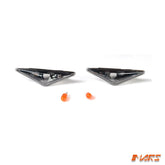
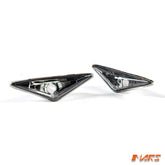
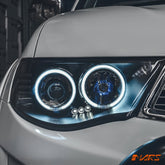

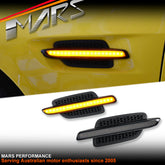

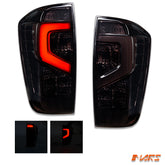

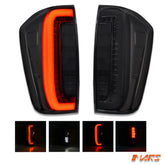
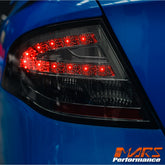

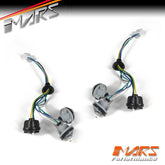
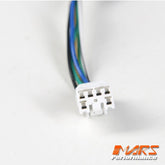



Leave a comment
Please note, comments need to be approved before they are published.